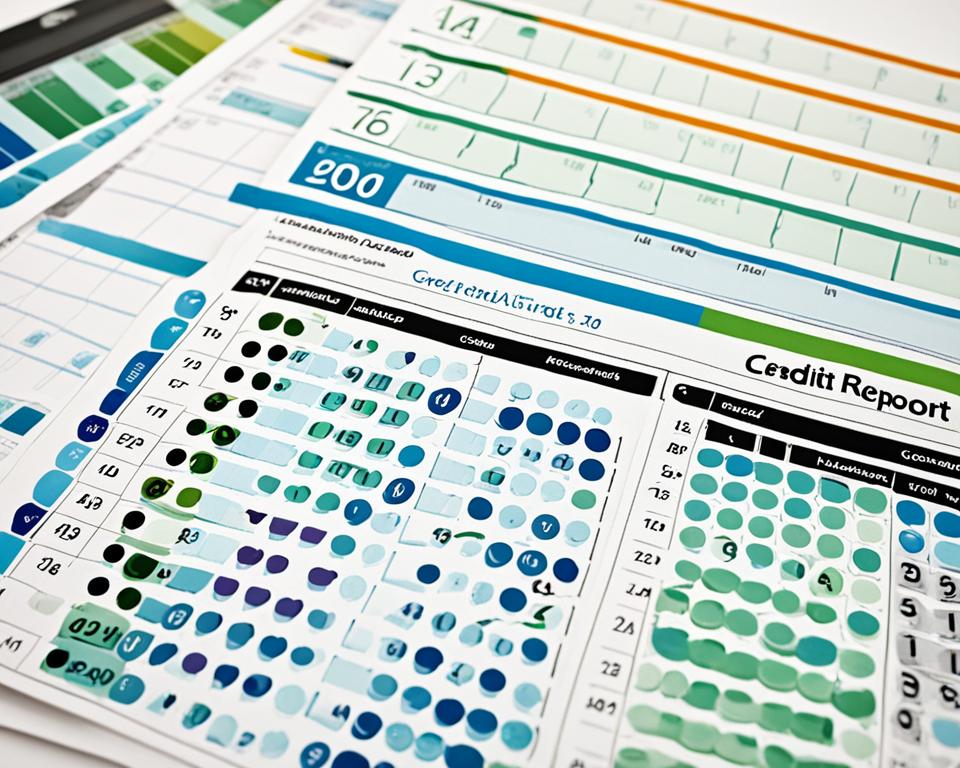Credit reports play a crucial role in assessing an individual’s financial health. They provide a snapshot of a person’s credit history, including their borrowing and repayment habits. However, many individuals wonder how often their credit reports are updated and what factors contribute to these updates. Understanding the frequency of credit report updates is essential for effectively managing one’s credit and making informed financial decisions.
Key Takeaways:
- Credit reports are not fixed and can change over time based on an individual’s financial behavior.
- Credit scores are calculated based on the information in credit reports, so the update frequency of credit reports directly impacts credit scores.
- Credit reports are typically updated at least once a month, but the exact frequency may vary depending on individual creditors.
- Lenders have the discretion to determine when and how often they report credit information to the credit bureaus.
- Regularly checking your credit report is important to monitor any changes and ensure the accuracy of the information.
How often do credit scores update?
Credit scores play a vital role in determining an individual’s creditworthiness. Understanding how often credit scores update is crucial for tracking changes in financial standing. Credit scores are calculated based on the information in credit reports, so their update frequency is tied to how often credit reports are updated.
Credit scores typically update at least once a month, but the actual update frequency may vary depending on individual circumstances. Various factors contribute to this variation, such as the reporting practices of lenders and the credit bureaus they report to. Not all lenders report information to all three credit bureaus, and the timing of their reporting can differ throughout the month.
As a result, credit scores may update on different dates depending on the creditor and the credit bureau involved. To get a comprehensive view of their credit score, individuals must consider the update timelines of all credit bureaus and the lenders they have accounts with.
For example, if a person holds credit accounts with lenders who report to all three credit bureaus, their credit scores may update at different intervals throughout the month based on when each lender reports. Additionally, lenders may have their own internal policies for reporting, leading to variations in the update frequency.
To illustrate this further, consider the following hypothetical scenario:
| Lender | Credit Bureau 1 | Credit Bureau 2 | Credit Bureau 3 |
|---|---|---|---|
| Lender A | Reports on the 5th of every month | Reports on the last day of every month | Reports every 15th and 30th of the month |
| Lender B | Reports every 10th of the month | Doesn’t report to this bureau | Reports every 20th of the month |
| Lender C | Reports every 25th of the month | Reports every 15th of the month | Reports every 5th and 25th of the month |
In this example, if an individual has credit accounts with all three lenders, their credit scores may update on multiple dates throughout the month, depending on when each lender reports to the respective credit bureau. This highlights the importance of understanding the specific reporting practices of lenders and credit bureaus to anticipate the refresh cycle of credit scores.
It’s worth noting that individuals can request their credit scores directly from credit bureaus or through various credit monitoring services. However, requesting credit scores too frequently may result in minor impacts on the credit score due to the presence of credit inquiries. Therefore, it’s advisable to request credit scores when there is a specific need rather than checking them excessively.
By regularly monitoring credit reports and staying proactive in managing credit, individuals can gain better control over their financial health.

The Importance of Credit Score Monitoring
Regularly monitoring credit scores allows individuals to stay informed about changes that can impact their financial well-being. Here are a few key reasons why credit score monitoring is essential:
- Identifying potential errors or inaccuracies in credit reports
- Spotting signs of identity theft or fraudulent activity
- Tracking progress towards credit improvement goals
- Preparing for significant financial decisions such as loan applications
By staying vigilant and aware of credit score updates, individuals can take necessary actions to maintain and improve their creditworthiness.
How often do lenders update credit reports?
Lenders have the flexibility to determine the frequency of updating credit reports. While many lenders typically report on a monthly basis, the specific schedule can vary depending on individual reporting practices.
For instance, credit card companies often report based on a recurring date, known as the billing cycle or statement date. However, this date may differ for each provider. Some lenders may choose to report to all three credit bureaus, while others may only report to one or two. There are also lenders who may opt not to report at all.
Importance of Credit Report Updates
A credit report is an essential tool that lenders use to assess an individual’s creditworthiness. By regularly updating credit reports, lenders ensure accurate and up-to-date information for evaluating borrowers. These updates help lenders make informed decisions regarding extending credit, setting interest rates, and other financial considerations.
Regularly monitoring your credit report can help you stay on top of your financial standing and address any discrepancies or issues promptly.
Understanding the update frequency of credit reports by lenders is crucial for maintaining a healthy credit profile. By staying informed about your credit standing, you can take proactive steps to improve your creditworthiness and ensure accuracy in your credit reports.

Next, let’s explore the information included in a credit report and its significance in assessing your creditworthiness.
What information is included in a credit report?
A credit report is a comprehensive summary of an individual’s financial behavior over time. It contains vital information that helps lenders assess creditworthiness and make informed decisions. Understanding the content of a credit report is essential for managing personal finances and achieving financial goals.
Here are some key details that are typically included in a credit report:
- Credit Accounts: This section provides details about the number and types of credit accounts held by the individual. It may include credit cards, loans, mortgages, and other forms of credit. It highlights the account names, account numbers, and the responsible lenders.
- Payment History: This section reflects the individual’s track record of making timely payments to their creditors. It showcases whether payments were made on time, late, or in default. Any instances of delinquencies, defaults, or charge-offs may be noted here.
- Credit Limits and Balances: This section displays the credit limits assigned to each account and the outstanding balances associated with them. It provides an overview of the individual’s credit utilization, which is the percentage of available credit being utilized.
- Recent Credit Inquiries: This section lists recent inquiries made by lenders when the individual applied for credit. It helps creditors understand the individual’s recent credit-seeking behavior and the potential risk associated with granting additional credit.
- Negative Information: This section highlights any instances of negative financial behavior, such as late payments, collections, bankruptcies, or tax liens. These negative occurrences can significantly impact creditworthiness.
- Public Records: This section includes information obtained from public records, such as tax liens, foreclosures, or court judgments. These records can have a lasting impact on an individual’s creditworthiness.
The information contained in a credit report is crucial for calculating credit scores, which are numerical representations of an individual’s creditworthiness. Lenders, employers, landlords, and other entities may refer to credit reports to assess financial responsibility and make informed decisions.
It’s important to periodically review credit reports to ensure the accuracy of the information and to identify any discrepancies or fraudulent activity. By understanding the content of a credit report, individuals can take proactive steps to manage their finances responsibly and improve their creditworthiness.
Is credit reporting voluntary?
Credit reporting is a voluntary process wherein lenders choose whether or not to report information to the credit bureaus. Each individual lender has the discretion to decide if and when they will report information and which credit bureaus they will report to, if any. Consequently, not all credit accounts or lenders will appear on your credit report. While some lenders opt not to report at all, others may report to only one or two credit bureaus.
This voluntary nature of credit reporting means that the information in your credit report is contingent upon the reporting practices of your creditors. As a result, the completeness and accuracy of your credit report may vary depending on the lenders’ decisions.
Why do lenders choose not to report to credit bureaus?
There are several reasons why a lender may choose not to report information to the credit bureaus:
- Some smaller lenders or credit unions may have limited resources or prefer not to incur the expenses associated with credit reporting.
- Lenders may prioritize reporting to specific credit bureaus based on their business requirements or customer demographics.
- Others may rely on alternative credit reporting methods or internal data for assessing creditworthiness.
As a result, the absence of certain lenders’ information on your credit report does not necessarily imply unfavorable creditworthiness; it merely reflects their reporting choices.
| Credit Report Information | Reporting Frequency by Lenders |
|---|---|
| Credit Account A | Reported Monthly to All Credit Bureaus |
| Credit Account B | Not Reported to Any Credit Bureau |
| Credit Account C | Reported Biannually to TransUnion Only |
| Credit Account D | Reported Annually to Equifax and Experian |
How often should you check your credit report?
Regularly monitoring your credit report is crucial for maintaining good financial health. By checking your credit report, you can keep track of your credit activity, detect any errors, and identify potential cases of identity theft or fraudulent activity. But how often should you check your credit report?
While there is no one-size-fits-all answer to this question, experts recommend checking your credit report at least once a year. This ensures that you stay informed about your credit status and have the opportunity to address any inaccuracies promptly.
However, there are certain situations when it may be beneficial to check your credit report more frequently:
- If you are actively monitoring your credit: If you are working on improving your credit or have recently experienced a financial setback, monitoring your credit more frequently, such as every few months, can help you stay on top of any changes and progress you are making.
- Prior to applying for credit: If you are planning to apply for a loan, mortgage, or credit card, it’s a good idea to check your credit report beforehand. This allows you to identify any potential issues or inaccuracies that could affect your creditworthiness and take necessary steps to address them before applying.
Regularly checking your credit report not only helps you stay informed about your financial situation but also empowers you to take control of your credit and make informed decisions about your financial future.
Quote:
“Monitoring your credit report is like checking the pulse of your financial health. By staying vigilant and regularly reviewing your credit report, you can catch any issues before they become major concerns.” – Financial Expert

Remember, your credit report contains valuable information that lenders use to evaluate your creditworthiness. By staying proactive and checking your credit report regularly, you can ensure that it accurately reflects your financial behavior and take immediate action if you spot any discrepancies.
How can you check your credit report for free?
Checking your credit report for free is an important step in managing your financial health. Fortunately, you have multiple options available to access your credit report without incurring any fees. Here are two reliable methods to obtain your credit report for free:
1. AnnualCreditReport.com
An excellent resource for accessing your credit report for free is AnnualCreditReport.com. This official website, authorized by the federal government, allows you to obtain a free annual credit report from each of the three major credit bureaus: Equifax, Experian, and TransUnion. By requesting your credit reports from this trusted platform, you can review your financial information and ensure its accuracy.
2. Credit Card Issuers and Other Websites
In addition to AnnualCreditReport.com, some credit card issuers and other websites offer free access to credit reports throughout the year. These providers may have partnerships or agreements with credit bureaus, enabling them to provide their customers with regular access to their credit reports. Check with your credit card issuer or explore reputable websites to see if they offer this convenient service.
When accessing your credit report for free, it’s essential to ensure that you use reputable sources to guarantee the accuracy and reliability of the information provided. By regularly checking your credit report, you can stay informed about your financial standing, identify any discrepancies, and take proactive steps to maintain a healthy credit history.

Checking your credit report for free empowers you to make informed financial decisions and protect your creditworthiness. By utilizing these free resources, you can stay vigilant and maintain control over your financial future.
What factors can cause credit score changes?
Credit scores can fluctuate due to various factors that impact an individual’s creditworthiness. Understanding these factors can help individuals make informed financial decisions and improve their credit scores over time.
1. Payment History
One of the most significant factors affecting credit scores is an individual’s payment history. Consistently making timely payments on credit accounts, such as loans, credit cards, and mortgages, can positively impact credit scores. On the other hand, late payments, defaults, or delinquencies can have a negative impact.
2. Credit Utilization Ratio
Another key factor is the credit utilization ratio, which is the percentage of available credit that an individual is using. Maintaining a low credit utilization ratio, ideally below 30%, shows responsible credit management and can positively impact credit scores. Higher credit utilization ratios can suggest increased credit risk and potentially lower credit scores.
3. Credit Inquiries
When individuals apply for new credit, such as loans or credit cards, the lender may request their credit report, resulting in a credit inquiry. Multiple inquiries within a short period can signal increased credit risk and potentially lower credit scores. However, soft inquiries, such as checking one’s own credit report or pre-approved credit offers, do not affect credit scores.
4. Addition or Removal of Accounts
Adding new credit accounts or closing existing ones can also impact credit scores. Opening new accounts can lower the average age of credit accounts, potentially impacting credit scores. Conversely, closing accounts can reduce the overall available credit, which can increase credit utilization ratios and affect credit scores.
5. Public Records, Collections, and Bankruptcy
Negative information such as bankruptcies, tax liens, or court judgments may be included in an individual’s credit report and can significantly impact credit scores. Collections and derogatory accounts can also have a negative effect, as they indicate difficulties in managing credit obligations.
By understanding these factors, individuals can take steps to maintain a healthy credit profile and improve their credit scores. It’s essential to practice responsible credit management, make timely payments, reduce credit card balances, and address any negative information on credit reports.
Do credit scores vary between credit bureaus?
When it comes to credit scores, you may be wondering whether they differ between credit bureaus. The answer is yes. Credit scores can vary between credit bureaus due to several factors that influence how they calculate and report credit scores.
Factors Contributing to Credit Score Variations
One reason for the variations in credit scores between credit bureaus is the different information each bureau has access to. Creditors may report information to one or two bureaus but not all three, which can lead to differences in the data used to calculate credit scores.
Additionally, credit bureaus may use different scoring models to calculate credit scores. While there are industry-standard scoring models, such as FICO and VantageScore, each bureau can customize these models and incorporate their own algorithms. As a result, credit scores can vary based on the specific scoring model used by each bureau.
It’s also important to consider that creditors may update information at different times throughout the month. This means that a change in your credit report with one bureau may not reflect immediately in your credit scores with the other bureaus. As a result, your credit scores can vary depending on when information is updated by creditors and reported to each credit bureau.
Understanding Consistent Trends
While there may be variations in credit scores between credit bureaus, it’s important to note that the overall trends and factors influencing your creditworthiness are generally consistent. Factors such as your payment history, credit utilization, length of credit history, and credit mix have a significant impact on your credit scores, regardless of which bureau is calculating them.
Therefore, it’s crucial to focus on the overall health of your credit rather than getting fixated on the specific number of your credit scores from each bureau. By building and maintaining positive credit habits, you can improve your creditworthiness and increase your chances of obtaining favorable credit terms.
| Credit Bureau | Scoring Model | Available Information |
|---|---|---|
| Equifax | FICO Score | Full credit history, public records |
| Experian | VantageScore | Bankruptcies, collections, trade lines |
| TransUnion | FICO Score | Credit accounts, payment history |
How long does information stay on a credit report?
The length of time that information stays on your credit report depends on the type of information. Understanding the lifespan of various entries on your credit report can help you better manage your credit history and make informed financial decisions.
Negative Entries
Most negative entries, such as late payments or collection accounts, typically stay on your credit report for seven years. This means that if you’ve had a delinquency or an account sent to collections, it can impact your credit score and report for a considerable period of time.
Chapter 7 Bankruptcy Filings
If you’ve filed for Chapter 7 bankruptcy, it will remain on your credit report for 10 years. This significant entry can have a long-lasting effect on your creditworthiness and may affect your ability to obtain credit or favorable loan terms.
Positive Entries
Positive entries, such as accounts closed in good standing, can remain on your credit report for up to 10 years. This includes well-managed credit accounts and loans that have been paid off or closed without any negative history. These positive entries can contribute to a strong credit profile and improve your creditworthiness.
Credit Inquiries
Credit inquiries, which occur when a lender or creditor pulls your credit report, stay on your credit report for two years. There are two types of credit inquiries: hard inquiries and soft inquiries. Hard inquiries, which result from credit applications, can have a slight negative impact on your credit score. Soft inquiries, such as those from pre-approved credit offers or your own credit checks, do not affect your credit score.
It’s important to note that as time goes by, the impact of negative information decreases and positive information becomes more influential. By understanding the lifespan of credit report information, you can be proactive in managing your credit and working towards a healthier financial future.
How can you improve your credit score?
Improving your credit score requires responsible financial habits and patience. By implementing the following strategies, you can raise your credit score and improve your overall financial health:
- Pay your bills on time: Timely payments show lenders that you are responsible and reliable.
- Reduce your credit card balances: Keeping your credit card balances low can positively impact your credit utilization ratio.
- Keep old accounts open: Lengthy credit history works in your favor, so avoid closing old accounts.
- Avoid new credit inquiries: Limit the number of new credit applications to minimize the impact on your credit score.
- Dispute inaccuracies on your credit report: Regularly review your credit report and report any errors to the credit bureaus for correction.
Remember that credit score improvement takes time, and there are no quick fixes. Consistently practicing good credit habits, such as paying your bills on time and managing your credit responsibly, will lead to positive changes in your credit score over time.
| Strategy | Benefits |
|---|---|
| Pay your bills on time | Shows responsibility and reliability |
| Reduce your credit card balances | Improves credit utilization ratio |
| Keep old accounts open | Lengthens credit history |
| Avoid new credit inquiries | Minimizes impact on credit score |
| Dispute inaccuracies on your credit report | Ensures accurate credit information |
How often should you request a new credit score?
When it comes to checking your credit score, finding the right balance is key. It is recommended to request a new copy of your credit score when necessary, such as when you are actively monitoring your credit or planning to apply for credit. This allows you to stay informed about your creditworthiness and take appropriate action when needed.
However, it’s important to consider the potential impact of requesting your credit score too frequently. Each time you request your credit score, a “credit inquiry” is recorded on your credit report. While a single credit inquiry generally has a minor impact on your credit score, multiple inquiries within a short period of time can be seen as a red flag to lenders and may have a slightly negative effect on your credit score.
Therefore, it’s advisable to request your credit score strategically, when you have a specific need for it, rather than checking it too frequently without a valid reason. By doing so, you can avoid unnecessary credit inquiries and maintain the overall health of your credit score.
Conclusion
Understanding the frequency of credit report updates is crucial in managing your financial health. Credit reports are typically updated at least once a month, although the exact timing may vary depending on individual creditors’ reporting practices. These updates are essential as they determine the information used to calculate your credit scores, which also update accordingly.
To ensure the accuracy of your credit report and stay proactive in managing your credit, it is important to regularly monitor any changes. By checking your credit report regularly, you can identify any errors or discrepancies and take the necessary steps to address them. Monitoring your credit report also allows you to stay informed about your financial standing and make informed decisions when it comes to applying for credit.
Remember, maintaining a healthy credit report involves responsible financial habits, such as making payments on time, keeping credit card balances low, and minimizing new credit inquiries. By staying diligent and proactive, you can better maintain your financial health and work towards achieving your long-term financial goals.
FAQ
How often are credit reports updated?
Credit reports are not fixed and can change over time based on your financial behavior. The update frequency of credit reports varies depending on individual creditors and their reporting practices.
How often do credit scores update?
Credit scores typically update at least once a month. However, this can vary depending on your unique financial situation and how often your credit reports are updated.
How often do lenders update credit reports?
Lenders have the discretion to determine when and how often they will report your credit information to the credit bureaus. While many lenders typically report on a monthly basis, this can vary based on their individual reporting practices.
What information is included in a credit report?
A credit report is a summary of your financial behavior over time. It includes information such as the number and types of credit accounts you have, your payment history, the total credit available to you, recent credit inquiries, and any negative information such as delinquencies or bankruptcies.
Is credit reporting voluntary?
Yes, credit reporting is voluntary, which means not all lenders report information to the credit bureaus. It’s up to each individual lender to decide if and when they will report information and which credit bureaus they will report to, if any.
How often should you check your credit report?
It is recommended to check your credit report regularly to monitor your financial health and detect any errors or fraudulent activity. While there is no set rule on how often you should check your credit report, it is advisable to check it at least once a year.
How can you check your credit report for free?
You are entitled to a free annual credit report from each of the three major credit bureaus – Equifax, Experian, and TransUnion. These free reports can be obtained through AnnualCreditReport.com, the official website authorized by the federal government.
What factors can cause credit score changes?
Credit scores can change due to various factors such as changes in your payment history, credit utilization ratio, credit inquiries, and the addition or removal of accounts on your credit report. Other factors such as public records, collection accounts, and bankruptcy filings can also impact your credit score.
Do credit scores vary between credit bureaus?
Yes, credit scores can vary between credit bureaus because each credit bureau may have access to slightly different information and uses different scoring models to calculate credit scores. Additionally, creditors may not report to all three credit bureaus, resulting in differences in the data used to calculate credit scores.
How long does information stay on a credit report?
The length of time that information stays on your credit report depends on the type of information. Most negative entries typically stay on your credit report for seven years, while Chapter 7 bankruptcy filings remain for 10 years. Positive entries can remain for up to 10 years, and credit inquiries stay for two years.
How can you improve your credit score?
Improving your credit score requires responsible financial habits such as paying your bills on time, reducing credit card balances, keeping old accounts open, avoiding new credit inquiries, and disputing any inaccuracies on your credit report.
How often should you request a new credit score?
It is recommended to request a new copy of your credit score when necessary, such as when you are actively monitoring your credit or planning to apply for credit. However, it’s advisable to request your credit score when you have a specific need for it rather than checking it too frequently without a valid reason.
What is the frequency of credit report updates?
Credit reports are typically updated at least once a month, but the exact frequency may vary based on individual creditors’ reporting practices. It’s important to check your credit report regularly to monitor any changes and ensure the accuracy of the information.





